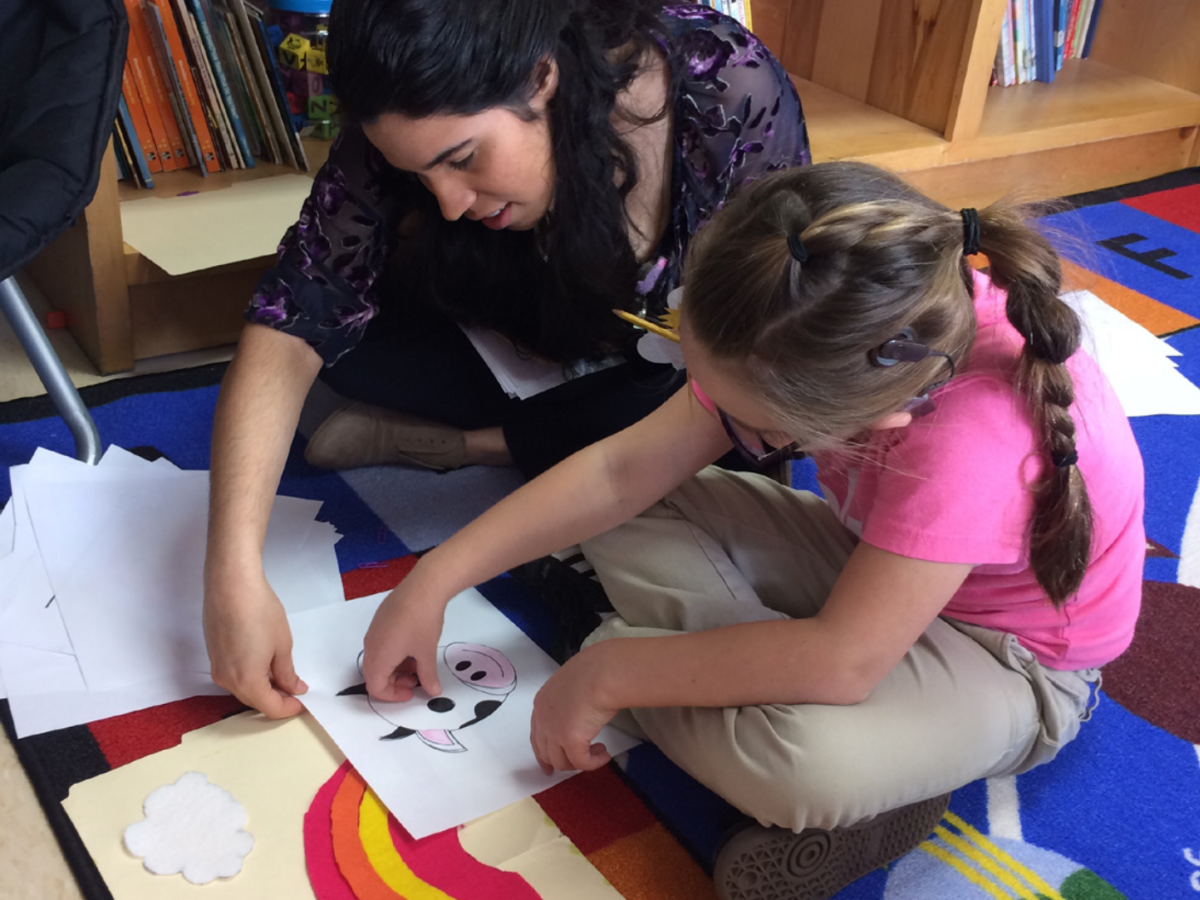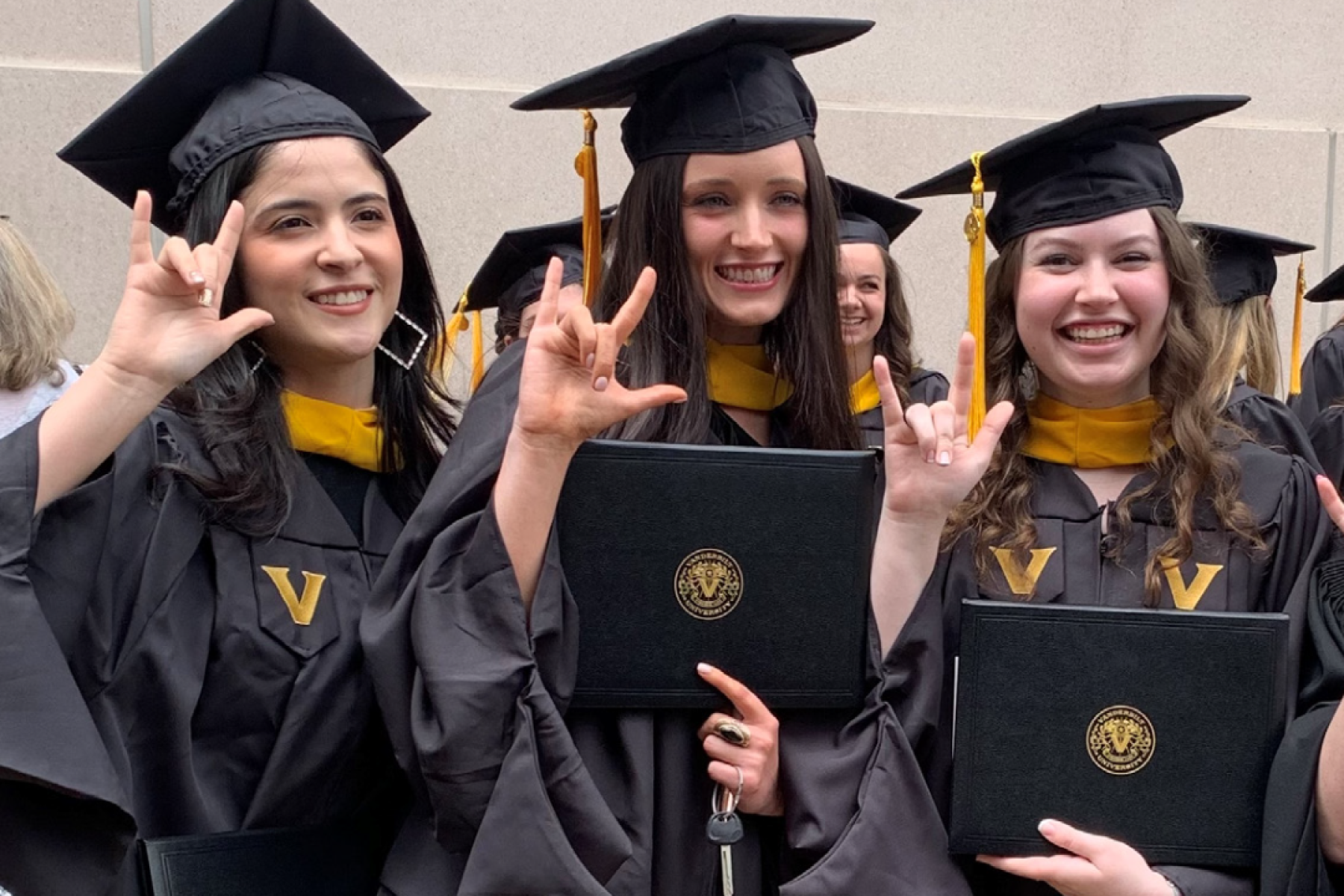Master of Education of the Deaf (MDE)
The Master of Education of the Deaf (MDE) is a one to two-year program emphasizing the training needed to develop communication skills in deaf and hard-of-hearing children through interdisciplinary teacher training in audiology, speech-language pathology, and deaf education.

Program Highlights
Fall Start
MDE students begin their studies each fall.
Financial Support
Financial awards are often available for admitted students. Please inquire to learn about current funding opportunities.
Full-Time Program
The MDE program at Vanderbilt is for full-time, residential students only.
Interdisciplinary
MDE students work and learn alongside MS-SLP and AuD students on the Specialty Track for Pediatric Hearing Loss, and have opportunities to work with deaf/hard-of-hearing children.
Program Outcomes
-
100%
Praxis pass rate
-
100%
Job placement rate
-
100%
Program completion rate
Explore the Program
Admissions Information
Cost and Financial Aid
Why VUSM
Take Our Quiz
MDE Virtual Informaton Sessions

Join us to learn about the Master of Education of the Deaf (MDE) program!
- -Q&A with Dana Kan, Director of the MDE Program
- -General information about the program and application process
- -Overview of the interdisciplinary specialty track in Pediatric Hearing Loss
Wednesday, Oct. 1, 2025
7:00 p.m. CDT
Thursday, Nov. 6, 2025
12:00 noon, CST
Register below or contact Dr. Dana Kan for more information.
Accreditation Information
Vanderbilt University School of Medicine's Master of Education of the Deaf (MDE) is accredited by the Council for Accreditation of Educator Preparation (CAEP).
Connect With Us
Interested in Vanderbilt’s Master of Education of the Deaf (MDE) program? Take the next step and explore our curriculum and admissions process, then schedule a prospective student visit or email us for more information.